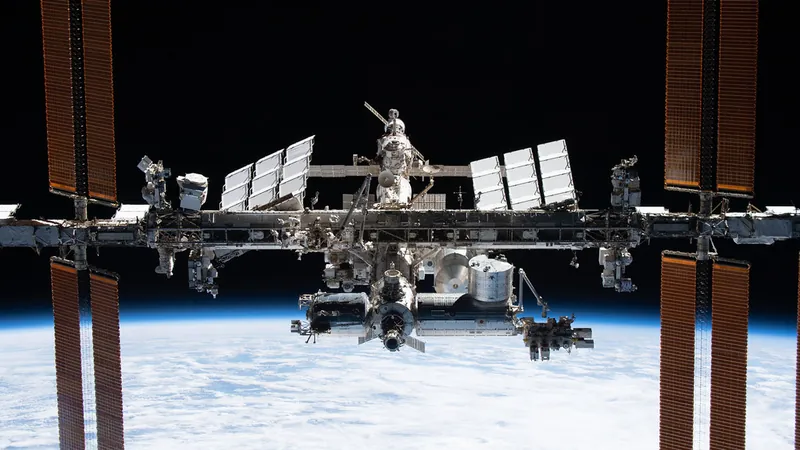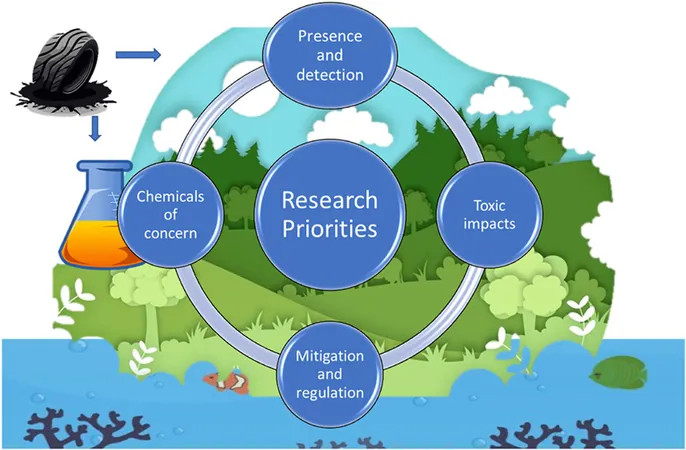
Why Outer Space is the Next Frontier for Foreign Direct Investment (FDI)
2024-11-12
Author: Wei
Why Outer Space is the Next Frontier for Foreign Direct Investment (FDI)
In recent years, the conversation around foreign direct investment (FDI) has appeared to shift toward a groundbreaking realm: outer space. With dramatic advancements in technology and a surge in commercial interest, the concept of in-space manufacturing is poised to evolve from a theoretical discussion into a booming market. Today's experts predict this nascent industry could see revenues soaring to between $1 billion and $2 billion annually by 2035, according to projections from the World Economic Forum.
What is In-Space Manufacturing?
So, what precisely is in-space manufacturing? It involves the production of goods in orbit around Earth, harnessing unique conditions such as microgravity and near-vacuum environments. These factors enable the manufacturing of materials and products in ways that aren't achievable on our home planet. Techniques like additive manufacturing (3D printing) and subtractive technologies can yield higher-quality outputs, particularly in sectors that demand precision like semiconductors, pharmaceuticals, biotechnology, and advanced materials.
The Role of the International Space Station (ISS) and Private Companies
Since its launch in 1998, the International Space Station (ISS) has been the primary venue for such experiments, focusing mostly on life-support technologies rather than commercial applications. However, as we approach the planned decommissioning of the ISS in 2030, private companies such as Axiom Space are stepping in. They aim to build commercial space stations that will not only continue research but will also facilitate scalable production.
The Economic Landscape for In-Space Manufacturing
With a notable decline in rocket launch costs and a flurry of private investment pouring into space startups, the trajectory for space manufacturing looks increasingly promising. Innovative companies like Redwire and Varda from the United States, alongside international players such as Poland’s Astronika and the UK’s BioOrbit, are already developing in-space manufacturing technologies.
Navigating Supply Chains in Space Manufacturing
Yet, the emergence of this industry could complicate global value chains that were already disrupted by the pandemic and geopolitical tensions. Production might take place in orbit only to be finalized on Earth, creating a labyrinth of supply chains that will necessitate agile and adaptive management solutions.
Strategic Investments and Global Cooperation
Countries strategically investing in high-tech industries related to in-space manufacturing will place themselves in a prime position to harness these new opportunities. Established space programs in nations like the United States, the United Kingdom, and Japan may grant them an early advantage, while emerging spacefaring nations like India, the UAE, and Saudi Arabia are also poised to capitalize on this evolving landscape.
The Need for Global Collaboration
It's crucial to recognize that global cooperation will be vital for maximizing the potential of the space economy. Given the high technological demands and funding challenges, no single nation can attain full self-sufficiency in this field. Only a few countries, namely the United States, Russia, and China, currently possess the capability to launch humans into space, highlighting the necessity for partnerships across borders and industries.
Redefining FDI Strategies
For FDI practitioners, this shift indicates a need to redefine strategies that prioritize technological capabilities and encourage investments in future industries ripe for in-space manufacturing integration.
Conclusion: A New Era of Manufacturing Beyond Earth
Standing at the precipice of what could be an industry-wide revolution, the potential for in-space manufacturing to transform economies is immense. The time is now for countries and companies alike to act decisively, securing a competitive edge in what promises to be a new era of manufacturing—beyond our planet. The dream of capitalizing on the cosmic frontier is no longer just a fantasy; it is becoming an attainable reality!



 Brasil (PT)
Brasil (PT)
 Canada (EN)
Canada (EN)
 Chile (ES)
Chile (ES)
 España (ES)
España (ES)
 France (FR)
France (FR)
 Hong Kong (EN)
Hong Kong (EN)
 Italia (IT)
Italia (IT)
 日本 (JA)
日本 (JA)
 Magyarország (HU)
Magyarország (HU)
 Norge (NO)
Norge (NO)
 Polska (PL)
Polska (PL)
 Schweiz (DE)
Schweiz (DE)
 Singapore (EN)
Singapore (EN)
 Sverige (SV)
Sverige (SV)
 Suomi (FI)
Suomi (FI)
 Türkiye (TR)
Türkiye (TR)